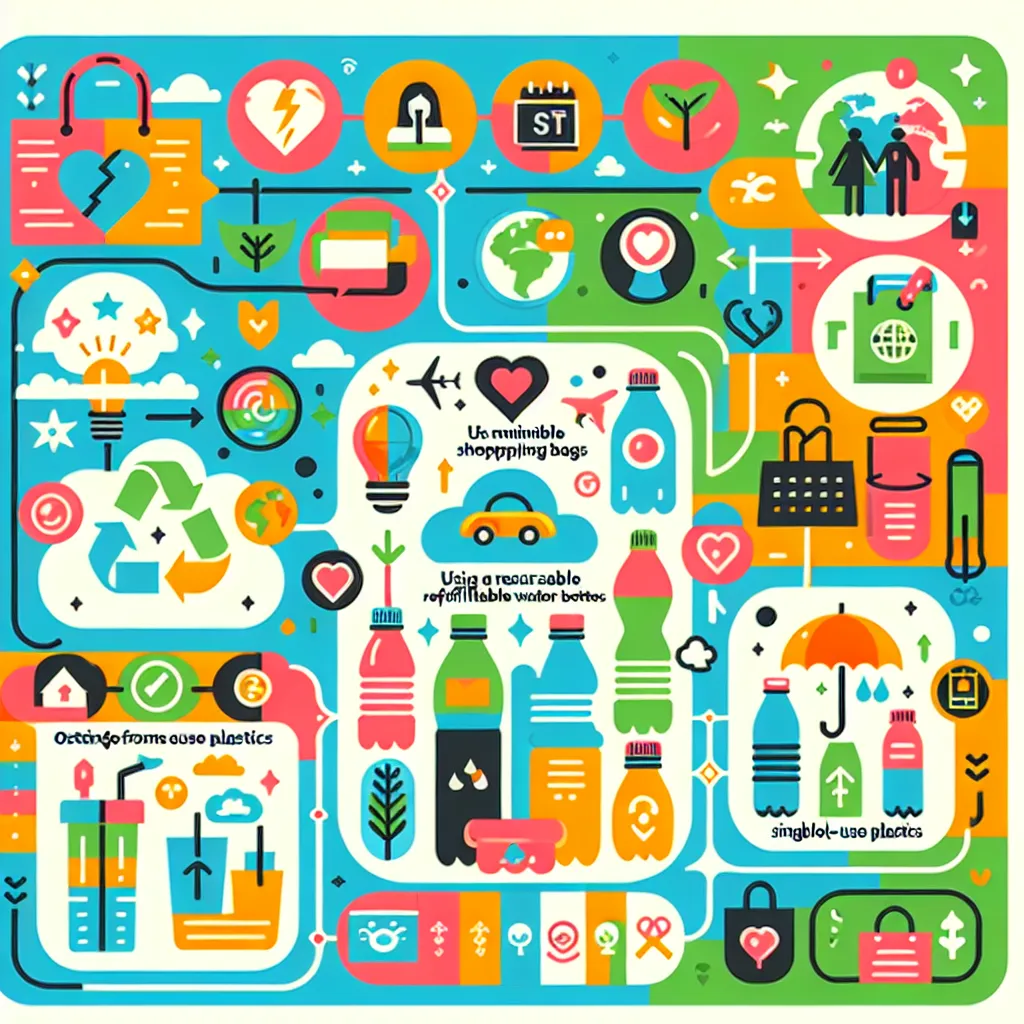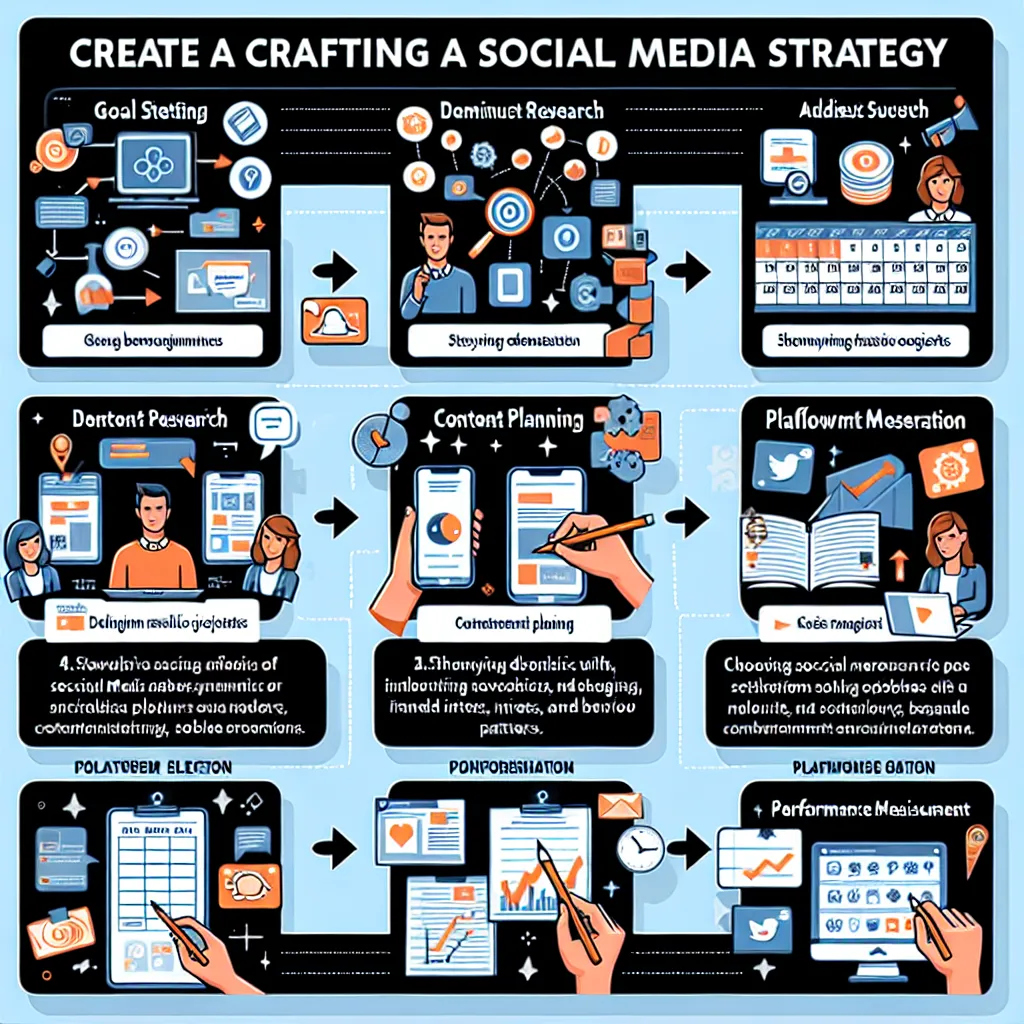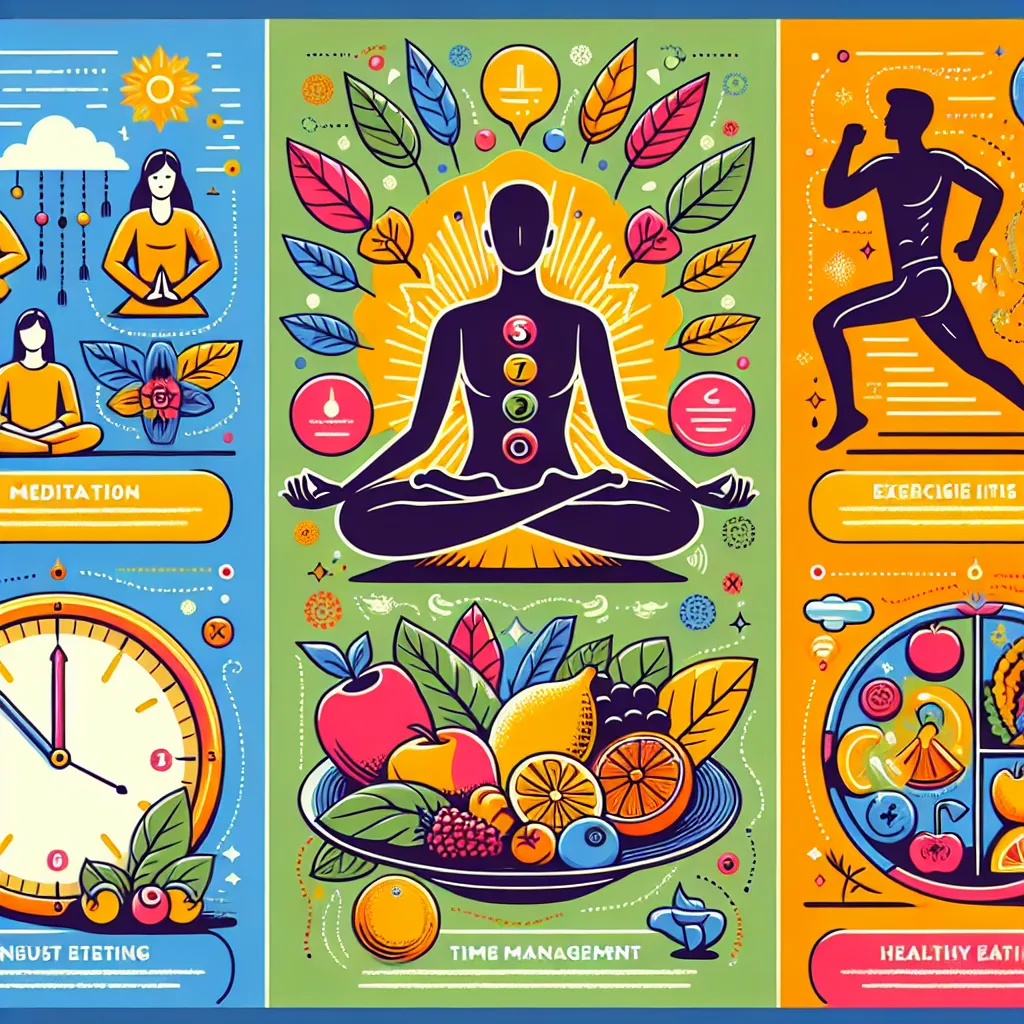The IELTS Reading test is a crucial component of the exam, assessing your ability to comprehend complex texts and answer various question types. Today, we’ll focus on a topic that has gained significant attention in recent years: how to reduce plastic use. This subject has appeared in several past IELTS exams and, given its ongoing relevance, is likely to feature in future tests as well.
Nội dung bài viết
- Reading Passage: Tackling the Plastic Problem
- The Global Plastic Crisis
- Individual Actions
- Business Initiatives
- Government Policies
- Innovative Solutions
- Education and Awareness
- Questions
- True/False/Not Given
- Multiple Choice
- Matching Headings
- Summary Completion
- Answer Key
- True/False/Not Given
- Multiple Choice
- Matching Headings
- Summary Completion
- Common Mistakes and How to Avoid Them
- Key Vocabulary
- Grammar Focus
- Tips for IELTS Reading Success
As an experienced IELTS instructor, I’ve noticed that environmental themes, particularly those related to sustainability and waste reduction, are becoming increasingly common in the Reading section. The topic of reducing plastic use is especially pertinent, as it combines elements of environmental science, consumer behavior, and public policy – all areas that IELTS examiners favor for their complexity and global significance.
Let’s dive into a practice reading passage on this important subject, followed by a range of question types you might encounter in the actual IELTS exam.
Reading Passage: Tackling the Plastic Problem
The Global Plastic Crisis
Plastic pollution has become one of the most pressing environmental issues of our time. Every year, millions of tons of plastic waste enter our oceans, harming marine life and ecosystems. The convenience of single-use plastics has led to a throwaway culture that is having devastating consequences for our planet. However, there are numerous ways individuals, businesses, and governments can take action to reduce plastic use and mitigate its harmful effects.
Individual Actions
One of the most effective ways to reduce plastic use is through individual action. Simple changes in daily habits can make a significant difference. For instance, using reusable shopping bags instead of disposable plastic ones can prevent hundreds of bags from ending up in landfills or oceans each year. Similarly, opting for a reusable water bottle rather than buying bottled water not only reduces plastic waste but also saves money in the long run.
Another area where individuals can make an impact is in their food consumption habits. Choosing products with minimal packaging, buying in bulk, and using reusable containers for storing leftovers can greatly reduce household plastic waste. Additionally, saying no to single-use plastic items like straws, cutlery, and coffee cup lids can help decrease the demand for these products.
Business Initiatives
Businesses play a crucial role in reducing plastic use on a larger scale. Many companies are now redesigning their products and packaging to be more environmentally friendly. For example, some cosmetics brands have introduced refillable containers, while others are experimenting with plastic-free packaging made from materials like bamboo or recycled paper.
In the retail sector, supermarkets are increasingly offering plastic-free aisles, where customers can buy products without any plastic packaging. Some stores are also implementing bring-your-own-container policies for items like grains, nuts, and cleaning products. These initiatives not only reduce plastic waste but also educate consumers about sustainable shopping practices.
Government Policies
Governments around the world are implementing policies to tackle the plastic crisis. Many countries have banned or placed taxes on single-use plastic bags, leading to significant reductions in their use. Some nations have gone further, banning a range of single-use plastic items including straws, cutlery, and coffee stirrers.
Legislation is also being introduced to improve recycling rates and promote a circular economy for plastics. Extended Producer Responsibility (EPR) schemes, which make manufacturers responsible for the entire lifecycle of their products, including disposal and recycling, are becoming more common. These policies incentivize companies to design products with recyclability in mind and invest in recycling infrastructure.
Innovative Solutions
Innovation in materials science is offering new hope in the fight against plastic pollution. Biodegradable plastics made from plant-based materials like cornstarch or seaweed are being developed as alternatives to traditional petroleum-based plastics. While these materials are not a perfect solution, as they still require specific conditions to break down completely, they represent a step in the right direction.
Another promising area of research is in plastic-eating enzymes. Scientists have discovered and engineered enzymes capable of breaking down plastic at an accelerated rate, potentially offering a way to deal with existing plastic waste more effectively.
Education and Awareness
Ultimately, reducing plastic use requires a shift in societal attitudes and behaviors. Education plays a vital role in this process. Schools are incorporating environmental education into their curricula, teaching students about the impacts of plastic pollution and ways to reduce their plastic footprint. Public awareness campaigns are also crucial in informing adults about the issue and encouraging them to make more sustainable choices.
By combining individual actions, business initiatives, government policies, innovative solutions, and widespread education, we can make significant progress in reducing plastic use and protecting our planet for future generations. While the challenge is enormous, the growing global awareness and commitment to tackling this issue provide hope for a cleaner, more sustainable future.
 Reduce plastic use infographic
Reduce plastic use infographic
Questions
True/False/Not Given
Do the following statements agree with the information given in the reading passage? Write
TRUE if the statement agrees with the information
FALSE if the statement contradicts the information
NOT GIVEN if there is no information on this
- Plastic pollution primarily affects terrestrial ecosystems rather than marine environments.
- Using reusable shopping bags can significantly reduce an individual’s plastic waste.
- All biodegradable plastics decompose easily in natural conditions.
- Government bans on single-use plastic bags have been ineffective in reducing their use.
- Plastic-eating enzymes have already been widely implemented in waste management systems.
Multiple Choice
Choose the correct letter, A, B, C, or D.
-
According to the passage, which of the following is NOT mentioned as a way for individuals to reduce plastic use?
A) Using reusable water bottles
B) Buying products with minimal packaging
C) Composting food waste
D) Avoiding single-use plastic cutlery -
What role do businesses play in reducing plastic use?
A) They exclusively focus on recycling initiatives
B) They redesign products and packaging to be more environmentally friendly
C) They only implement bring-your-own-container policies
D) They solely rely on government regulations to reduce plastic use -
Which of the following best describes the purpose of Extended Producer Responsibility (EPR) schemes?
A) To increase the production of single-use plastics
B) To make manufacturers responsible for the entire lifecycle of their products
C) To promote the use of non-recyclable materials
D) To reduce government involvement in waste management
Matching Headings
Match the following headings to the correct paragraphs in the passage. Write the correct number (i-viii) next to the paragraph letters (A-E).
i. The role of scientific advancements
ii. The importance of changing public perception
iii. Corporate strategies for plastic reduction
iv. The scale of the plastic pollution problem
v. Personal steps towards less plastic consumption
vi. Legislative measures to combat plastic waste
vii. The limitations of biodegradable plastics
viii. The impact of plastic on marine life
A. The Global Plastic Crisis – Paragraph 1
B. Individual Actions – Paragraph 2
C. Business Initiatives – Paragraph 3
D. Government Policies – Paragraph 4
E. Innovative Solutions – Paragraph 5
Summary Completion
Complete the summary below using words from the box. Write the correct letter (A-L) next to questions 9-14.
A) refillable B) recycling C) enzymes D) packaging E) bans F) education
G) awareness H) containers I) circular J) compostable K) policies L) alternatives
Reducing plastic use requires a multifaceted approach involving individuals, businesses, and governments. On a personal level, using reusable bags and (9) for shopping and storage can make a significant impact. Businesses are introducing (10) options and redesigning their (11) to be more eco-friendly. Governments are implementing (12) on single-use plastics and promoting a(n) (13) economy through various schemes. Innovation in materials science is producing biodegradable (14) to traditional plastics, while research into plastic-eating enzymes offers hope for dealing with existing waste.
Answer Key
True/False/Not Given
- FALSE – The passage states that “millions of tons of plastic waste enter our oceans, harming marine life and ecosystems.”
- TRUE – The text mentions that “using reusable shopping bags instead of disposable plastic ones can prevent hundreds of bags from ending up in landfills or oceans each year.”
- NOT GIVEN – While the passage discusses biodegradable plastics, it doesn’t specify whether all of them decompose easily in natural conditions.
- FALSE – The passage states that many countries have banned or taxed single-use plastic bags, “leading to significant reductions in their use.”
- NOT GIVEN – The passage mentions plastic-eating enzymes as a promising area of research but doesn’t discuss their current implementation in waste management systems.
Multiple Choice
- C – Composting food waste is not mentioned in the passage as a way to reduce plastic use.
- B – The passage states that “Many companies are now redesigning their products and packaging to be more environmentally friendly.”
- B – The text explains that EPR schemes “make manufacturers responsible for the entire lifecycle of their products, including disposal and recycling.”
Matching Headings
A. iv – The scale of the plastic pollution problem
B. v – Personal steps towards less plastic consumption
C. iii – Corporate strategies for plastic reduction
D. vi – Legislative measures to combat plastic waste
E. i – The role of scientific advancements
Summary Completion
- H – containers
- A – refillable
- D – packaging
- E – bans
- I – circular
- L – alternatives
Common Mistakes and How to Avoid Them
-
Misinterpreting “Not Given” answers: Many test-takers confuse “False” with “Not Given.” Remember, “Not Given” means the information is neither confirmed nor contradicted in the passage.
-
Overlooking key words: Pay close attention to qualifiers like “all,” “some,” “always,” or “never” in the questions, as they can change the meaning significantly.
-
Falling for distractors in multiple-choice questions: Read all options carefully and eliminate those that contradict the passage or are not mentioned.
-
Mismatching headings: Ensure you understand the main idea of each paragraph before matching it with a heading.
-
Using words not in the given list for summary completion: Only use the words provided in the box, even if you think you know a better fit.
Key Vocabulary
- Mitigation (noun) – /ˌmɪtɪˈɡeɪʃən/ – the action of reducing the severity, seriousness, or painfulness of something
- Biodegradable (adjective) – /ˌbaɪəʊdɪˈɡreɪdəbl/ – capable of being decomposed by bacteria or other living organisms
- Incentivize (verb) – /ɪnˈsentɪvaɪz/ – motivate or encourage (someone) to do something
- Circular economy (noun phrase) – /ˈsɜːkjələr iˈkɒnəmi/ – an economic system aimed at eliminating waste and the continual use of resources
- Enzyme (noun) – /ˈenzaɪm/ – a substance produced by a living organism which acts as a catalyst to bring about a specific biochemical reaction
Grammar Focus
Pay attention to the use of conditional sentences in environmental contexts:
-
Zero conditional: “If we use reusable bags, we reduce plastic waste.”
(Used for general truths or scientific facts) -
First conditional: “If governments ban single-use plastics, it will significantly reduce pollution.”
(Used for likely or probable future scenarios) -
Second conditional: “If all companies adopted sustainable packaging, plastic pollution would decrease dramatically.”
(Used for hypothetical or less likely situations)
Tips for IELTS Reading Success
-
Time management is crucial. Spend about 20 minutes on each of the three sections in the Reading test.
-
Skim the passage quickly first to get a general idea, then read the questions carefully.
-
Use the headings and subheadings to navigate the text more efficiently.
-
Practice active reading by underlining key information and making brief notes.
-
Don’t spend too much time on one question. If you’re stuck, move on and come back to it later if you have time.
-
For matching exercises, eliminate options as you go to make the task easier.
-
Always check your spelling and grammar when transferring answers to the answer sheet.
-
Expand your vocabulary by reading widely on various topics, especially those related to science, society, and the environment.
Remember, success in IELTS Reading comes with consistent practice and familiarity with various question types. Keep working on your speed and accuracy, and you’ll see improvement in your performance.
For more practice on IELTS Reading, check out our other resources on how to reduce plastic use in daily life and how to reduce single-use plastics. These articles provide additional context and vocabulary that can be beneficial for your IELTS preparation.


